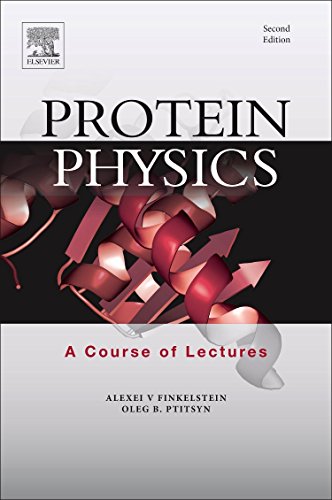

Most ebook files are in PDF format, so you can easily read them using various software such as Foxit Reader or directly on the Google Chrome browser.
Some ebook files are released by publishers in other formats such as .awz, .mobi, .epub, .fb2, etc. You may need to install specific software to read these formats on mobile/PC, such as Calibre.
Please read the tutorial at this link: https://ebookbell.com/faq
We offer FREE conversion to the popular formats you request; however, this may take some time. Therefore, right after payment, please email us, and we will try to provide the service as quickly as possible.
For some exceptional file formats or broken links (if any), please refrain from opening any disputes. Instead, email us first, and we will try to assist within a maximum of 6 hours.
EbookBell Team

4.4
12 reviewsProtein Physics: A Course of Lectures covers the most general problems of protein structure, folding and function. It describes key experimental facts and introduces concepts and theories, dealing with fibrous, membrane, and water-soluble globular proteins, in both their native and denatured states.
The book systematically summarizes and presents the results of several decades of worldwide fundamental research on protein physics, structure, and folding, describing many physical models that help readers make estimates and predictions of physical processes that occur in proteins.
New to this revised edition is the inclusion of novel information on amyloid aggregation, natively disordered proteins, protein folding in vivo, protein motors, misfolding, chameleon proteins, advances in protein engineering & design, and advances in the modeling of protein folding.
Further, the book provides problems with solutions, many new and updated references, and physical and mathematical appendices. In addition, new figures (including stereo drawings, with a special appendix showing how to use them) are added, making this an ideal resource for graduate and advanced undergraduate students and researchers in academia in the fields of biophysics, physics, biochemistry, biologists, biotechnology, and chemistry.